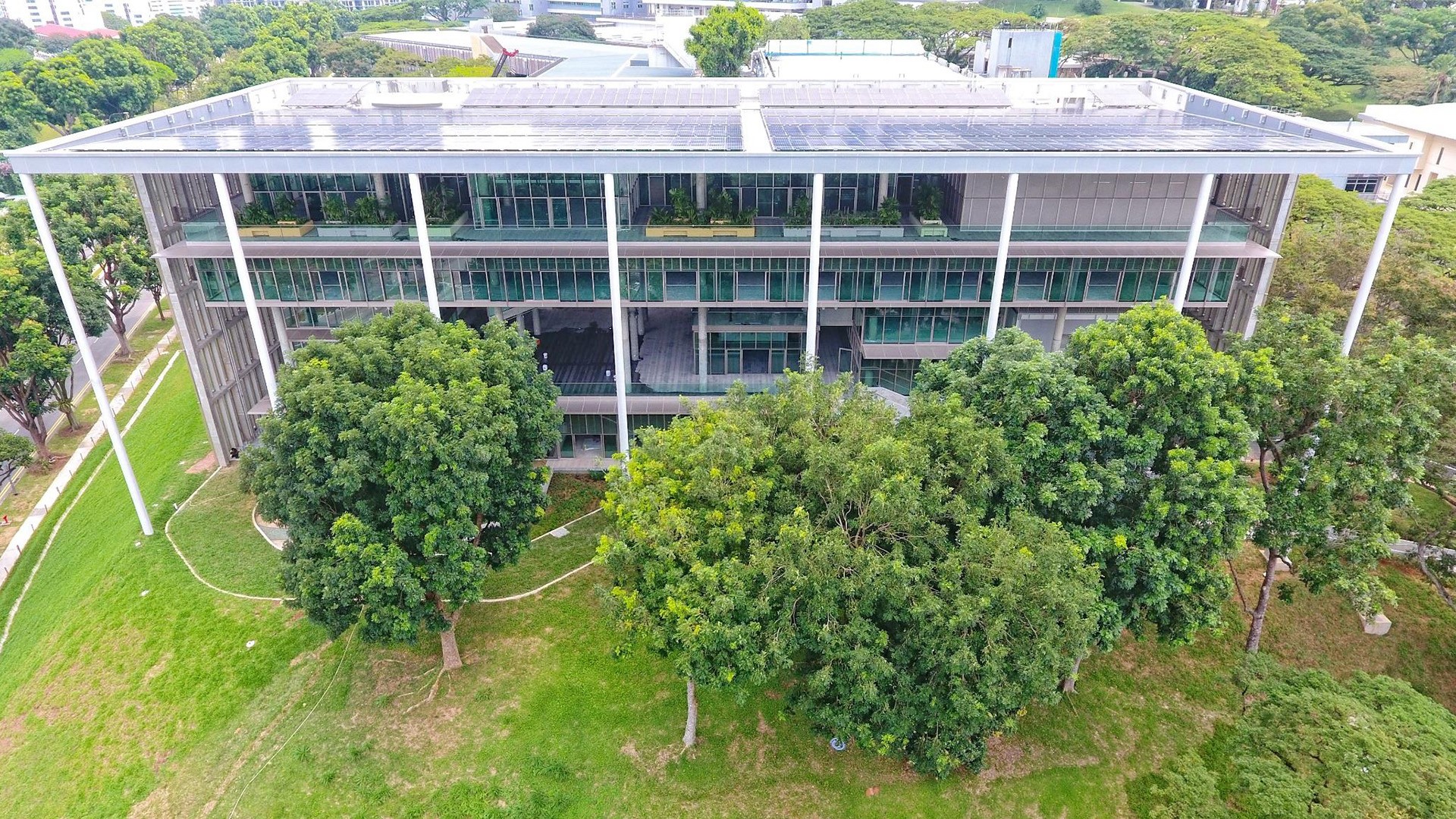NUS SDE4 is first in Southeast Asia to achieve ILFI Zero Energy certification
The NUS School of Design and Environment 4 (SDE4) is the first building in Southeast Asia to be awarded the stringent Zero Energy Certification by the International Living Future Institute (ILFI), one of the world’s most prestigious sustainability organisations.
In the built environment, zero energy is recognised worldwide as one of the highest aspirations in energy performance. The Zero Energy certification by ILFI is based on actual performance and awarded to green buildings where 100 per cent of its energy needs on a net annual basis is supplied by on-site renewable energy sources, with no combustion. It is the only performance-based standard of its kind operating globally. The ILFI is an international environmental non-profit organisation, which also administers the flagship Living Building Challenge, the world’s most rigorous green building standard.
“As the world addresses climate change, it is critical to see buildings like the NUS School of Design and Environment 4 move aggressively to earn Zero Energy Certification. This fantastic project shows that project teams can rise to the challenge by creating buildings that produce more energy than they use, serving as a model for other universities in Singapore, across Southeast Asia, and around the world,” said Mr Shawn Hesse, Director of Business Development at the ILFI.
Operational since January 2019, SDE4 is Singapore’s first new-build net-zero energy building. The multi-disciplinary academic building, which is six-storey high and spans 8,588 square metres, was developed by NUS Design and Environment in partnership with external consultants, builders and developers. It consists of a range of sustainable design features that have been holistically integrated into its architecture to not only deliver user health and comfort in the tropical context, but also meticulously programmed to be highly energy efficient.
One of its key features is a large overhanging roof which hosts more than 1,200 photovoltaic (PV) panels to harness solar energy to meet the energy demands of the building. It also features an innovative hybrid cooling system to effectively manage the building’s energy consumption, supplying 100 per cent fresh pre-cooled air, albeit at higher temperatures and humidity levels than in a conventional system, and augments this with an elevated air speed by ceiling fans.
A pathway to achieving net-positive energy
Based on SDE4’s annual post-occupancy studies and energy audits from April 2019 to March 2020, prior to the COVID-19 circuit breaker period in Singapore, SDE4 has performed beyond its net-zero design intent. Please refer to table below and ILFI website for more details.
| NUS SDE4’s performance (April 2019 to March 2020) | |
| Actual energy use during performance period | 470,750 kWh |
| Actual energy produced during performance period | 619,345 kWh |
| Net Energy Use | -148,595 kWh |
| Energy Use Intensity (EUI) | 55 kWh/m2/year |
There are three key reasons for the improved performance:
- Enhanced energy production: The PV panels are not only capable of meeting the building’s energy demand, but are expected to feed higher surplus of energy back to the electricity grid over their whole lifespan (25 years) due to higher PV efficiency and better overall performance;
- Tight building control and operation management: Allowed a reduction of the building Energy Use Intensity (EUI) – the building’s energy use divided by its area, from a designed 65 kWh/m2/year to an operational 55 kWh/m2/year; and
- Hybrid cooling system performance: Energy consumption for cooling is reduced by more than 20 per cent compared to conventional air-conditioning
Beyond the design intent, SDE4’s expected net-positive energy outcome is a result of a concerted and collaborative effort by the School’s management and building users who have ensured a prudent consumption of energy all-year-round. A Building Management System that includes Occupancy Sensing Thermal Controls and Indoor Environmental Quality Monitoring overseen by the School ensures that these trends in building occupancy and energy usage are monitored and studied for a continued and sustained impact through the building lifespan.
Professor Lam Khee Poh, Dean of SDE, said, “The fact that the building exceeded its original energy target chronicles an important milestone in SDE’s ‘Well & Green’ vision for environmental stewardship. We are now progressively expanding our sustainability targets from net-zero energy buildings to integrated zero carbon developments.”
SDE4 has won multiple awards for its green design and architecture, including the Architecture MasterPrize 2020 in Institutional Architecture Category, and the Blueprint Awards 2019, Best Public Use Project with Public Funding. The building was awarded the Green Mark Platinum certification by Singapore’s Building and Construction Authority. It was also the first university building in the world to achieve WELL Certified™ Gold, and the first building in Singapore to be conferred the WELL Certification, a premier building standard by the International WELL Building Institute (IWBI) in September 2019.

